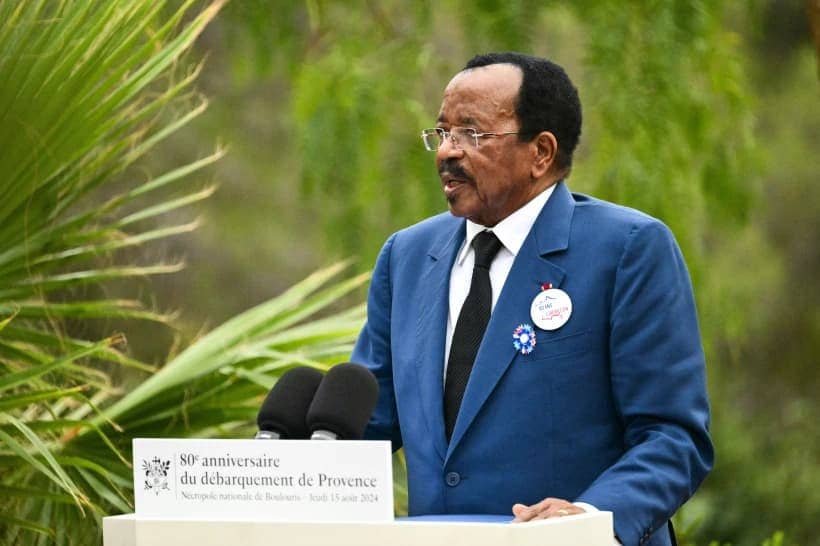YAOUNDÉ, Cameroon – A priest in Cameroon has refused to accept his suspension for performing unauthorized exorcisms.
Bishop Philippe Alain Mbarga of Ebolowa suspended Father Moïse Omié on Aug. 10 for engaging in activities “antithetical” to Catholic teaching. Mbarga in his suspension letter accused the priest of “deserting his ecclesiastical accommodations to live in the town and involving himself in situations that are incompatible with the priestly life.”
The priest has also been accused of living openly with a woman, with whom he has had children.
“Despite our warnings and appeals over numerous meetings, he never deigned to leave his residence in town,” Mbarga told La Croix, a French Catholic newspaper.
“His divergent behaviour and actions are linked to his involvement with a circle that is not attached to the Roman Catholic Church, of which he has been a member since August 2013. The suspension of Moïse Omié means that he is prohibited from carrying out any priestly functions including teaching, administration and sanctification,” the bishop said in his decree.
The bishop warned the faithful in Ebolowa to ignore the teachings of the suspended priest, avoid his ceremonies and stop taking spiritual guidance from him.
He said the suspended priest can be welcomed back to the fold should he change his ways and called on Christians to keep praying for what he considered to be an errant priest.
However, the priest, who was ordained in 2007, has announced he has left the Catholic Church for another jurisdiction.
“I am now a member of the Brazilian Catholic Church, therefore the bishop of Ebolowa no longer has any authority over me. I have new superiors from whom I take instructions. I would like to reassure my followers and let them know they need not be afraid of coming to pray with me for deliverance,” he told La Croix.
The Brazilian Catholic Church is an independent Catholic church established in 1945 by the excommunicated Bishop Carlos Duarte Costa.
“I therefore reassure my followers to not be afraid to come for deliverance sessions,” he said.
Local Catholics in Ebolowa say they are disturbed by the actions of the priest and remain “faithful to the Catholic faith.”
Speaking by telephone to Crux, an official of the Catholic Men’s Association in Ebolwa, Martin Mbezele, said the Church was fast becoming invaded by priests with no vocation, and who can easily lead the faithful astray.
“Our spiritual leaders are supposed to show us the right way. When they get involved in some pagan practices, it’s rather unfortunate,” he said.
The practice of exorcism by unauthorized Catholic priests has been judged by the bishops of Cameroon as encouraging paganism. The bishops also say fake priests often claim to be exorcists in order to extort money from desperate Christians.
The then-Archbishop of Douala, Cardinal Christian Tumi in 2001 called on Christians to beware of such “false Churches and false priests.”
“Stay attached to your parishes and be vigilant in communion with your priests. Each time you doubt the identity of someone who comes to you saying he is a priest of the Roman Catholic Church; seek clarification from your parish priest. It is the surest way not to get lost,” he said in a statement.
Mbarga clarified when he suspended Omié, it wasn’t a denial of the necessity of exorcisms, or that the Catholic Church doesn’t believe in possession.
The bishop said the Catholic Church authorizes exorcism, but it must be carried out by especially-trained priests. He said exorcisms must also only be carried out on people who have been evaluated by doctors to ascertain that their claims of being possessed by demons are not the result of some mental or physical illness.
It is not the first time a Cameroonian bishop is suspending a priest performing unauthorized exorcisms.
In July 2013, Archbishop Joseph Atanga of Bertoua suspended Father Louis Marie Kilian Mbarga for “disobedience and exorcism.”
And in 2014, the Vatican defrocked four priests, also in the Bertoua Archdiocese: Two of them were also accused of abusing children during their “exorcisms.”















